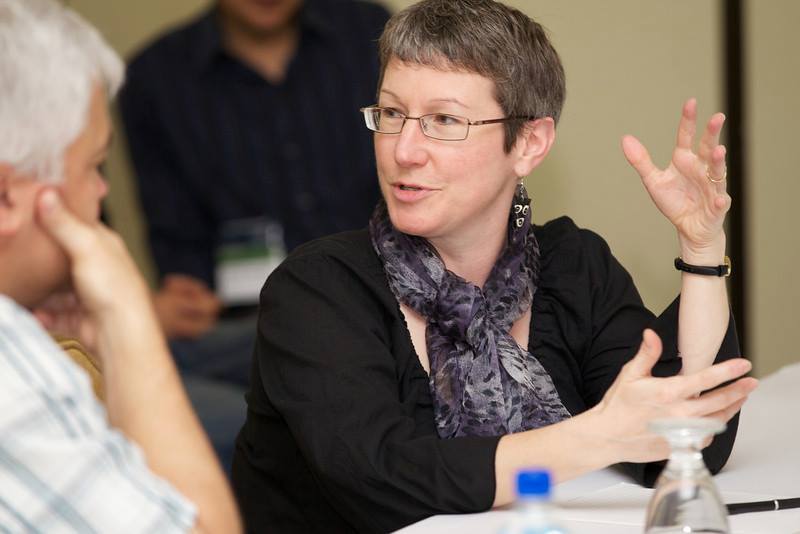Contributed by Stephanie Robert, M.S.W., Ph.D., Professor and Director, UW-Madison School of Social Work (shown in photo below, courtesy of Stephanie Robert)
As faculty, most of us were trained well to be researchers; some of us received some training on teaching; hardly any of us received training on how to be good mentors. Yet mentoring ends up being an important part of what we do as faculty. I’ve come to believe that training faculty to be better mentors can both help mentees have better educational experiences, and also help faculty enjoy their roles as mentors more.
 Along with my colleague, Pam Asquith, we have adapted a training titled Mentor Training for Social Science Researchers, which will be available in February 2017. After being trained to facilitate the mentor training for Clinical and Translational Researchers, we decided that social scientists needed their own training, with case studies and examples more relevant to their needs. In addition to adapting this training to be relevant for social scientists, we made adaptations that specifically allow for conversations about how to mentor interdisciplinary mentees and about challenges associated with multiple-mentor models. We have piloted both the full nine-hour version and shorter versions with groups of faculty from different social science disciplines. This new curriculum is one of a number of curricula adapted from “Mentor Training for Clinical and Translational Researchers” (Pfund et al), which is part of the Entering Mentoring Series edited by Christine Pfund and Jo Handelsman.
Along with my colleague, Pam Asquith, we have adapted a training titled Mentor Training for Social Science Researchers, which will be available in February 2017. After being trained to facilitate the mentor training for Clinical and Translational Researchers, we decided that social scientists needed their own training, with case studies and examples more relevant to their needs. In addition to adapting this training to be relevant for social scientists, we made adaptations that specifically allow for conversations about how to mentor interdisciplinary mentees and about challenges associated with multiple-mentor models. We have piloted both the full nine-hour version and shorter versions with groups of faculty from different social science disciplines. This new curriculum is one of a number of curricula adapted from “Mentor Training for Clinical and Translational Researchers” (Pfund et al), which is part of the Entering Mentoring Series edited by Christine Pfund and Jo Handelsman.